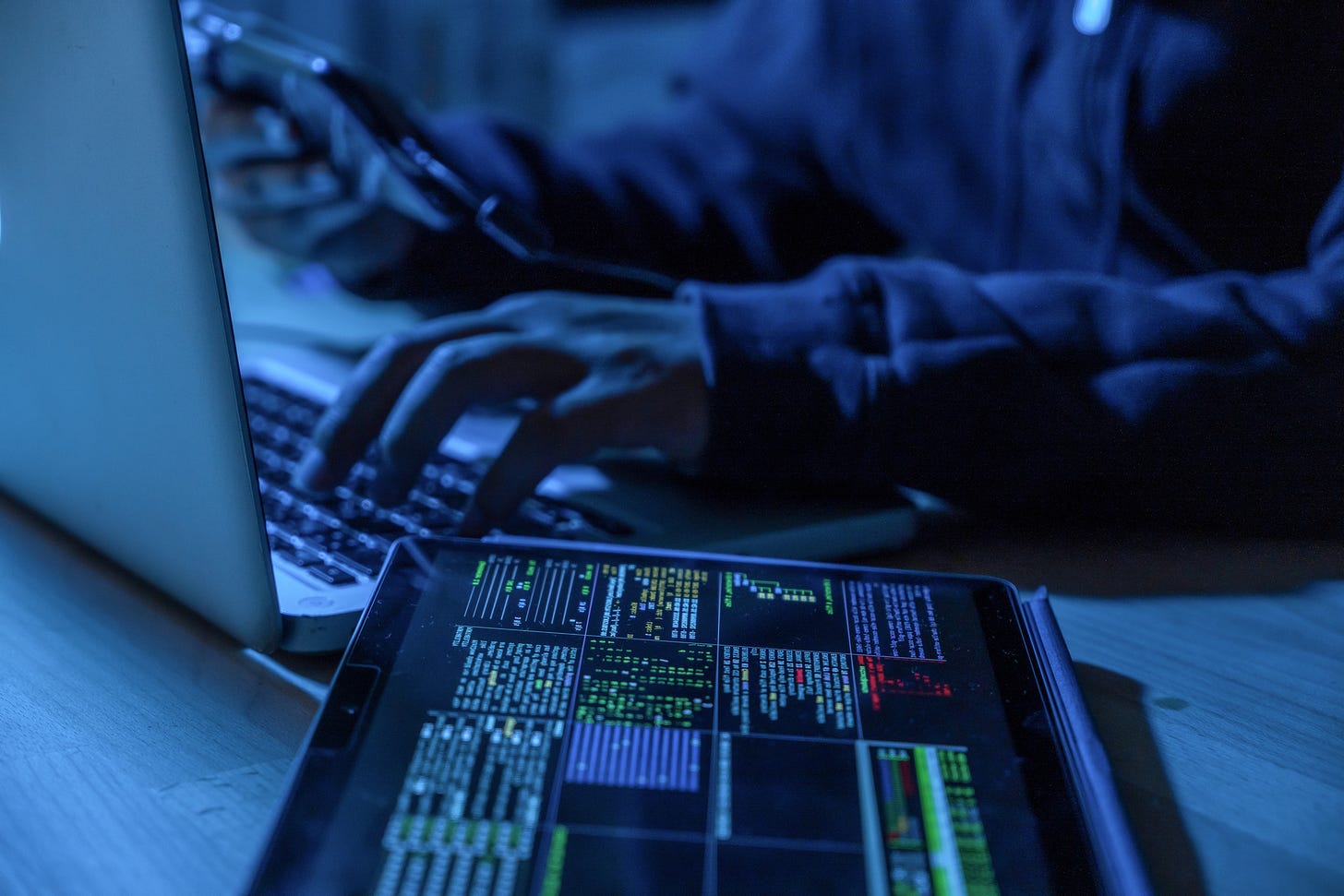We Are Still Vulnerable to Hacks in 2024
With the impending Presidential Election on the horizon in the next two years, it is critical that the US work to insulate itself from foreign adversaries hacking governmental systems at all levels.
While Donald Trump and his supporters led a brigade of false allegations that voting machines were hacked during the 2020 election, the claims were later debunked by investigative data. The actual risks posed by hackers were still an ongoing issue ahead of the Midterm Elections, with concerns that hackers could tunnel into voting equipment and other election infrastructure to undermine the vote.
The United States has put safeguards in place to protect voting equipment to ensure that any hack could be localized and quickly detected. The reality following Trump’s ongoing lies has ensured that the public will always be questioning the final results, regardless of any actual tampering.
The US officials, who are responsible for overseeing election protections have confirmed that lately, they are watching for threats from multiple groups and countries. In the most recent months, social media companies and cybersecurity researchers have identified Chinese influence operations that have been directed at disturbing the elections process.
The latest election in the US appeared to have negligible instances of hacking, mis-information and account hijacking being successfully used to alter the final voting results. But these various methods for disrupting elections remain a constant threat and could still be weaponized in 2024 to create distrust in the process and the result.

These above mentioned tactics, to influence the results, will undoubtedly be an issue that is placed in the forefront of politics, especially if Donald Trump is the Republican nominee. Some of the largest threats that remain still exist at the lower level of government systems, where upgrades on outdated equipment are lacking.
The New York City Law Department was forced to disable its own computer network in June of 2021, after detecting a cyber-attack within the 1,000-lawyer agency that represents the city in court. The breach was first detected on a Saturday, but by that next Monday morning, access to the network was still limited due to “connectivity” problems.
“No one is currently able to log on to the Law Department’s computer system,” New York City lawyer, Katherine J. Weall, wrote in an email following the event. Another lawyer for the department had to file for an extension on a deadline with a federal judge in Manhattan due to the outage.
Later that same day, city officials confirmed that a cyber-attack detection had forced them to disable the Law Department’s entire computer network on that Sunday afternoon. According to officials, the weekend attack on the legal system is now under investigation by the intelligence bureau of the New York Police Department and the FBI’s cyber task force.
Then-Mayor Bill de Blasio made a television appearance the next Monday evening to reassure the public that there was no real evidence of any compromised data, and that there had been no ransom demand. But, de Blasio also warned that the situation was still “emerging.” Laura Feyer, a spokeswoman for Mayor de Blasio, told The Daily News, which first broke the story: “[The City’s Cyber Command] promptly launched an investigation into the matter.” Feyer went on to explain, “As the investigation remains ongoing, the City has taken additional steps to maintain security, including limiting access to the Law Department’s network at this time.”
Despite the lack of a ransom request or proof of a substantial information breach, this latest hack remains especially concerning for the following reasons: Russian aggression in Ukraine continues and this particular computer system houses one of the biggest law offices in the country that handles lawsuits, city contracts, and legislative proposals. Private information, such as social security numbers, was also at risk in a system breach of this kind.
While this technological hack does not appear to be immediately detrimental in terms of stolen information, and it does not create the same shortage and safety issues that the Colonial Pipeline Company and JBS meat processor attacks posed, it still presents a different sort of danger. The types of institutions that are being targeted, when assessed as a part of one long, ongoing hacking experiment, represent a very diverse and complex system of targets. A successful hacker of this kind could force a complete shutdown within the United States if the attempted hacks are simultaneously perfected.
Data technology is essentially two-pronged: it involves the software that drives information and the software that enables operations, commonly referred to as information technology (IT) and operational technology (OT) respectively. Plainly put: IT runs the books, while OT keeps the factory running.
Information technology is typically the first targeted with weaponized software, or “malware,” because this area holds the data that can be monetized. Additionally, the IT side is more exposed to the internet, which means it is more vulnerable to bad actors attempting to hack into the system. The results from these types of money-driven system attacks have primarily meant some customer data loss, identity theft, and fraud losses.
The Colonial Pipeline Company and JBS meat processor hack attacks have provided another layer of threat that still exists — one that has the potential to create a sourcing disaster while possibly obfuscating actual intent. Hackers that demand ransoms to restore system operations and access could be bad actors who are just in it for the money, or it could be a more insidious way for a foreign government to camouflage its role in an attack by deflecting responsibility.
Hostile intelligence agencies in Russia, China, and possibly Iran can remotely disrupt the electric grid within the United States and the delivery of vital goods and services. The federal government formally assessed and publicized the threat years ago. Despite knowing about these cyber weaknesses and the possible diplomatic and geopolitical ramifications to the US, little has been done by the federal government to find a solution to lessen or stop the ongoing threat.

If the most recent hacks are the work of a unified collective, then the system attacks at various levels that have the potential to disrupt civil and corporate operations should be cause for even more alarm. The possibility that several different types of hacks are currently being attempted as practice in perfecting one massive multi-system hack is a genuine possibility.
Considering that several state-wide election systems were breached in 2016, it might be that the Midterm Election was not the end goal but rather another practice attempt to perfect a Presidential Election hack in 2024. While gas shortages and interference with national food supply is a scary proposition, smaller attacks like the one on the New York City Law Department could be cause for more concern and could represent the evolving skill and diversification of a substantial foreign enemy.
Currently, the US is still attempting to track down four Russian hackers that are believed to be involved in attempts to compromise critical infrastructure worldwide, with South Africa now on the hackers’ list of targets. The FBI has also linked three of the four accused – Pavel Aleksandrovich Akulov, Mihkail Mikhailovich Gavrilov, and Marat Valeryevich Tyukov – to operations that targeted thousands of computers, at hundreds of companies and organizations, in approximately 135 countries.
According to the FBI: “This group included global oil and gas firms, utility and electrical grid companies, nuclear power plants, renewable energy companies, consulting and engineering groups, and advanced technology firms.” As these ongoing Russian cyberattacks continue all over the world, while Putin continues to wage war on Ukraine, one thing is clear — our computer systems continue to remain at risk and the most vulnerable are still the smaller networks.
Amee Vanderpool writes the SHERO Newsletter and hosts the live SHERO podcast on Callin. She is an attorney, published author, contributor to newspapers and magazines, and analyst for BBC radio. She can be reached at avanderpool@gmail.com or follow her on Twitter @girlsreallyrule.
Paid subscriptions and one-time tributes embedded in each article allow me to keep publishing critical and informative work that is sometimes made available to the public — thank you. If you like this piece and want to support independent journalism further, you can forward this article to others, get a paid subscription or gift subscription, or donate once, as much as you like today.









Hi Amee,
I have a question that has been bothering me since the original documents were returned. Didnt trump sign a law that made mishandling official documents a crime punishable by a minimum of five years? If that is the case, then shouldn't that be enough to incarcerate him for breaking the law that he signed?
I know there is so much more, but if he were behind bars, then things might move faster. I just wonder why this law has not been invoked against the traitor.
Be safe,
Harold
I don't understand Amee why the NSA cannot be used to block hacks from foreign adversaries. The NSA is part of the military. If Russia or CCP or Iran interfere, that seems like an "attack" on the US.